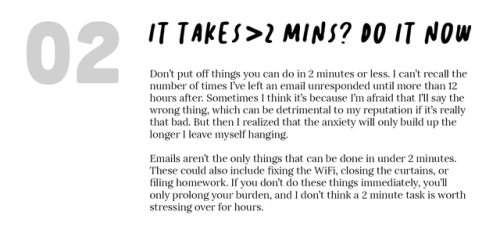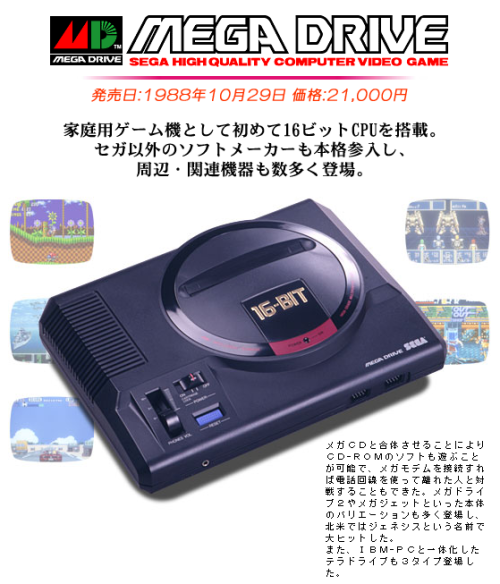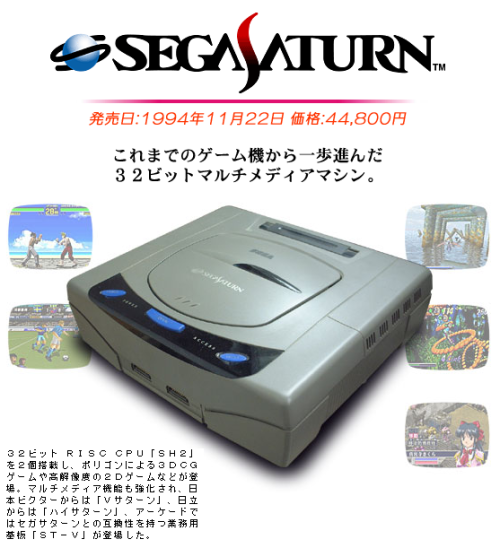228 posts
Latest Posts by lokarprincipal - Page 7
Oh my gosh

😁😁😁
Muito instrutivo.

Saturday, July 22nd, 2017
Here are some of the very best apps for students; either in highschool or in college. I have used many of the following apps, but not all of them. Some, I have just asked friends about and they suggested those ones.
Please enjoy the apps below, tell me how you like them, and feel free to add onto this list :)
Focus: SelfControl, Forest, MindNode, FocusBooster, FocusWriter, Think, StayFocused, Freedom, Cold Turkey, Anti-Social, Time Out, SmartBreak, Balanced
Productivity: Evernote, Any.do, MyScript Nebo, Outlook, Trello, Droptask, Basecamp, Pocket, Gyst, Doodle, Pen and Paper, Wunderlist, Toggl, Asana, Wolfram Alpha
Sounds: Tide, WhiteNoise, Chroma Doze, Coffitivity, Noisli, Brain.fm, NatureSpace, Noizio, Rainy Mood, SimplyNoise, Spotify, Slacker Radio
Language Learning: Duolingo, Memrise, Busuu, Babbel, Livemocha, Living Language, Tandem, MindSnacks
Games: Lumosity, Sudoku, TanZen, GeoMaster Plus HD, Speed Anatomy, Star Walk, LeafSnap, Splice: Tree of Life, Vismory, Pigments, Viridi, Sunshine, Nota
Revision: Gojimo, Revision App, iMindMap, Exam Countdown, Penultimate, Clippet
Test Prep: Khan Academy, Magoosh ACT Flashcards, The Grading Game, Math Brain Booster, ACCUPLACER Study App, CK-12, NRICH, StudySync, Quizlet, StudyAce, That Quiz, Brilliant, Synap
Planner: Timeful, Remember the Milk, Listastic, Finish, 2Do, iStudiez Pro, MyHomework Student Planner, My Study Life, ClassManager, MyLifeOrganized, Daily Agenda, Schedule Planner, Todoist
Writing: EasyBib, ProWritingAid, Bubbl.us, WiseMapping, yWriter5, Storybook, Q10, Write 2 Lite, Writer, Diaro, Note Everything, OmmWriter, Draft
Health: MyFitnessPal, Lose It, Endomondo, FitNet, Sworkit, Daily Yoga, Yonder, Fooducate, SideChef, Rise, LifeSum, Meditation Studio, Happify, 7 Cups, Clue, Start, Power Nap App, Fit Radio, Calm
Courses: Corsera, PhotoMath, Udemy, HowCast, SimpleMind+, Open Culture, Canvas, Schoology, Alison, CourseBuffet, Degreed, Instructables, InstaNerd, Big Think, Yousician, Pianu
Books & Reading: CampusBooks, Scribd, Pocket, Wattpad, GoodReads, Readmill, Audible, Prizmo, Blio, Kindle, Overdrive, BlueFire Reader, Nook, Kobo, Aldiko, Cool Reader
Note Taking: SuperNotes, StudyBlue, Bento, QuickOffice, Google Keep, Zoho Notebook, Simplenote, Bear, OneNote, Box Notes, Dynalist.io, Squid, Notability
Inspiration: TED, Lift, Believe It: You Will Achieve, BrainCourage, Get Inspired, iFundamentals, Reinventing Yourself, iWish, Pozify, Positive Thinking - The Key to Happiness, The Gratitude Journal
Other: WiFi Finder, Mint, Zwoor, Brain Pump, Curiosity, Ready4 SAT, GradeProof, edX, Mendeley, Due, CamScanner, IFTTT, Square Cash
Muito bom










Did you know?
Online look for the best feiyue shoes on: http://www.icnbuys.com/feiyue-shoes
Fofo

Hidratante para pele oleosa: 10 opções incríveis para todos os bolsos
Um dos grandes erros de quem tem a pele oleosa é pensar que ela não necessita de hidratação. É comum, na tentativa de deixar a pele sequinha, pular essa etapa da rotina e escolher produtos adstringentes, mas que acabam gerando o efeito rebote e deixando o rosto do jeito que nós menos desejamos. Por isso, vai aqui uma dica de amiga: da próxima vez que for à farmácia, escolha um hidratante para pele oleosa que vai cuidar e ajudar a diminuir esse brilho incômodo.
E para cuidar da pele nem sempre é preciso desembolsar rios de dinheiro! Existem produtos baratinhos e você também pode fazer uma misturinha com produtos que você tem em casa e que podem ser grandes aliados. Continue aqui e saiba como ter uma pele linda e livre da oleosidade!
Qual o melhor hidratante para pele oleosa?
Existem diversos produtos no mercado que vão desde os mais caros até aqueles bons e baratos que a gente ama! Para facilitar sua vida, separamos aqui as melhores opções e a opinião sincera de quem já usou!
1. Creme Facial Avon Care Matificante – $
Dicas de Mulher
Este creme é um baratinho e de sucesso da Avon! Sua fórmula possui vitamina E, que ajuda a controlar a oleosidade da pele, reduz a aparência do brilho e ainda deixa o efeito matte na hora! Outra promessa que faz brilhar os olhos de quem tem pele oleosa é a de deixar a pele macia e livre de brilho o dia todo! A única coisa que deixa a desejar é consistência do produto, mas ainda assim, vale a pena testar!
“Eu gostei muito desse produto porque ele dá um leve efeito blur e deixa a pele mais lisinha e macia como diz na descrição do produto. O único problema dele é o efeito pegajoso.” – Rubia G. Wreczinski
Compre aqui
2. Gel Facial Hidratante Antioleosidade Granado – $
Dicas de Mulher
O hidratante da Granado para peles oleosas tem tudo para ganhar seu coração. De cara, ele já chama a atenção por ser oil free e possuir efeito matte. Ele hidrata a pele, tem toque seco, promete reduzir o tamanho dos poros e ainda auxilia na prevenção da acne! O creme é bem levinho, não tem cheiro, não possui ingredientes de origem animal e não deixa a pele grudenta.
“Apesar de ser oile free, próprio para controlar a oleosidade, ele não deixa a pele repuxando nem muito menos irritada. Bem pelo contrário! A pele fica bem sedosa com ele e não tive qualquer tipo de irritação.” – Bia Munstein
Compre aqui
3. Hidratante Protetor Matificante Natura Tez – $
Dicas de Mulher
Eis outro produto baratex e desses bem fáceis de encontrar. O hidratante para peles mistas e oleosas da Natura faz parte da linha Tez, pensada para deixar os cuidados faciais muito mais simples. Já na tampa do produto está a promessa tentadora: pele macia e sequinha com efeito matte e FPS 15, o que já dá uma ajudinha no dia a dia.
O produto oferece hidratação prolongada e conta com partículas matificantes que controlam o brilho e absorvem a oleosidade. Ele também é leve, fácil de espalhar e é rapidamente absorvido, deixando o toque seco.
“Quando você abre, a textura do produto é muito boa, muito levinha! Ele hidrata sim a pele […], mas não acho que o produto absorve imediatamente.” – Erica Tutty
Compre aqui
4. Creme Facial Nutritivo Nívea – $$
Dicas de Mulher
Provavelmente você vá viu por aí o famoso creme da latinha azul da Nívea. Mas a boa da marca para as peles oleosas é o Creme Facial Nutritivo, um produto feito com tecnologia Hydro-Waxes à base de água e que tem fórmula ultraleve. Ele promete uma hidratação intensa por 24 horas, mas sem deixar aquela sensação oleosa. É ótimo para ser usado antes da maquiagem, deixando a pele bonita e com um aspecto saudável.
“Ele tem textura creme e é superaveludado, parece um primer. Ele é fininho, some na pele, não é pegajoso e fica como se fosse uma luva. […] Ele não pesa e deixa a pele refrescante.” – Amanda Pastore
Compre aqui
5. Loção Hidratante Facial Tea Tree – The Body Shop – $$$
Dicas de Mulher
A loção hidratante da The Body Shop é um produto de textura leve, não oleosa e que hidrata deixando o efeito matte que as donas de peles oleosas tanto amam. Umas das vantagens mais legais desse produto é que o uso regular ajuda a evitar acnes e espinhas!
“É um produto que sempre após usar eu sinto a pele macia, hidratada e fresca. Ele hidrata bem, tem a textura leve e após secar deixa a pele bem matte e a sensação de frescor e limpeza prolongada.” – Dúvidas de Beleza
Compre aqui
6. Hidratante Facial Hydro Boost Neutrogena – $$$
Dicas de Mulher
O hidratante da Neutrogena agrada de cara quem tem pele oleosa por ter textura gel e ser superlevinho. Ele possui na fórmula ácido hialurônico e glicerina, que agem ajudando a restabelecer os níveis saudáveis de água e estimulando o processo de renovação, fazendo com que a pele fique mais bonita dia após dia.
“Ele espalha super fácil, a textura dele é muito leve. […] Ele tem uma pegada viçosa e hidratante, a pele fica super macia e com um brilho que não é aquele brilho pegajoso, é um brilho de viço. Depois que a pele absorve completamente ele fica mais sequinho. A sensação ao toque é muito boa.” – Tour da Beleza
Compre aqui
7. Hidratante Redutor de Linhas de Expressão Mary Kay – $$$$
Dicas de Mulher
O hidratante da linha Timewise da Mary Kay promete hidratação por até 10 horas, além de ajudar a reduzir as rugas e linhas de expressão, deixando a pele mais firme e suave. O produto é livre de óleo, não obstrui os poros e também ajuda a controlar o excesso de oleosidade.
“Quando eu uso ele eu sinto que a minha pele acorda bem mais renovada, bem mais bonita, com uma cara de: acordei bem, dormi muitas horas durante a noite. ” – Cacá Anjos
Compre aqui
8. Gel Hidratante Peles Oleosas Dramatically Different – Clinique – $$$$$
Dicas de Mulher
Apesar de estar na lista dos hidratantes mais caros, esse produto da Clinique pode ser considerado um investimento! Ele foi desenvolvido por dermatologistas especialmente para as peles oleosas. Sua fórmula é livre de óleo e mantém o equilíbrio perfeito da hidratação deixando a pele confortável nas partes mais críticas, como nas maçãs do rosto ou na zona T. Ele pode ser encontrado em embalagens de 125 ml ou 50 ml e tem um excelente custo-benefício, pois apenas um pump é suficiente para todo o rosto!
“Esse hidratante hidrata na medida, você não fica com aquela sensação melequenta no rosto, ele deixa a pele confortável, a pele absorve rápido. Ele também pode ser usado antes da maquiagem.” – Manu Peixinho
Compre aqui
9. Mineral 89 Vichy – $$$$$
Dicas de Mulher
Apesar de ser indicado para todos os tipos de pele, o Mineral 89 da Vichy tem textura gel agrada muito quem tem pele oleosa! O produto tem na fórmula alta concentração de água termal mineralizante e ácido hialurônico que trazem inúmeros benefícios!
Ele promete fortalecer a pele contra exposições diárias, como poluição, mudanças de clima, raios UV, deixa a pele mais resistente contra as agressões do dia a dia, preenche a pele, hidrata, acelera a regeneração, tonifica e aumenta a luminosidade. E o melhor de tudo é que todos esses benefícios estão ao seu alcance em um produto com textura gel e não oleosa. Demais, né?
“A primeira coisa que eu amei nesse produto foi a textura aquagel. Você aplicou, ele fica um pouco molhado, mas dali um minuto ele seca e você fica com a pele bem macia, você sente na hora a hidratação, sente que a sua pele está mais macia e com toque bem seco.” – Joyce Kitamura
Compre aqui
10. Effaclar Mat La Roche Posay – $$$$$
Dicas de Mulher
O Effaclar Mat da La Roche Posay não é dos mais baratos, mas suas promessas são tentadoras! O hidratante ajuda a controlar diariamente a oleosidade e a reduzir o tamanho dos poros. Ele tem textura oil-free enriquecida com microesferas que matificam a pele instantaneamente, além de possuir em sua fórmula um ativo que combate a produção de oleosidade em sua origem. É um daqueles produtos que vale cada centavo investido!
“Esse produto é um investimento. […] Ele é um produto muito bom, é um dos melhores hidratantes que eu já usei para matificar a pele e para combater a oleosidade. Ele é aquele tipo de hidratante que você usa e sente dia após dia sua pele ficando menos oleosa, com menos brilho.” – Dúvidas de Beleza
Compre aqui
Hidratante caseiro para pele oleosa
Você sabia que com apenas alguns ingredientes é possível preparar algumas receitinhas que podem ajudar a controlar a oleosidade da pele? Olha só!
Pele oleosa nunca mais – 2 Receitas Caseiras para pele oleosa
Confira nesse vídeo duas receitas para dar aquela forcinha quando a pele estiver mais oleosa: uma à base de amido de milho e outro com borra de café.
Pele oleosa nunca mais! Melhor primer caseiro
O primer é um dos passos fundamentais na preparação de pele, principalmente para quem tem a pele oleosa e os poros mais abertos. Com pouquíssimos ingredientes e de forma bem simples você pode fazer um primer em casa. Descubra como!
Farsali e Fix Plus caseiro
Nesse video você vai aprender a preparar dois produtos incríveis que servem para hidratar e deixar a pele mais bonita e que não custam tão barato no mercado: estamos falando do Farsali e do Fix Plus. Faça o teste e comprove você mesma!
Mesmo com todas essas dicas maravilhosas, nunca deixe de consultar seu dermatologista para saber o que é melhor para você e ficar com uma pele linda, hidratada e livre da oleosidade!
O post Hidratante para pele oleosa: 10 opções incríveis para todos os bolsos apareceu primeiro em Dicas de Mulher.
Hidratante para pele oleosa: 10 opções incríveis para todos os bolsos Publicado primeiro em https://www.dicasdemulher.com.br/
Se ao menos ele tivesse prestado mais atenção ás aulas de física.

Miscatculation.
UAU um bocado de conhecimento.
big subject masterpost!!
ENGLISH & ESSAYS - lit, lang, essays
ap lit
english literature masterpost
english literature tips
ap literature reading list
literature masterpost
ap lang
how to study for the ap lang exam
ap language and composition
another ap lang mp
essays
a guide to outlining essays
academic writing resources
writing last minute essays
SOCIAL SCIENCES - hug, gov, econ, ush, euro, world
ap hug
ap human geography
another ap hug masterpost
ap hug masterpost
tackling ap human geography
ap gov
how to do well in ap gov
ap govt and politics resources
ap gov and politics
ap gov resources
youtube ap gov review
ap econ
ap macro econ sheets
how to survive ap economics
lets get economical
ap ush
how to procrastinate for the apush exam
apush resources
ap us history masterpost
another apush masterpost
all the topics u need to know for apush
ap world
ap world history
ap world masterpost
how to study ap world history
one more world masterpost
ap euro
ap euro masterpost
ap euro crunch time
european history masterpost
ap euro tips
SCIENCES - comp sci, psych, chem, physics
computer science
pltw masterpost
coding masterpost
typing masterpost
coding online
learn to code
how to study for computer science
psychology
ap psychology: a masterpost
teach urself psychology n neuroscience
more psychology
ap psych resources
masterpost of psych notes
ap psychology
chemistry
how to organic chemistry
science resources
another org chem masterpost
ap chemistry
high school chemistry cheat sheet
chemistry resource masterpost
ap chemistry masterpost
chemistry resources
physics
physics links
studying for ap physics
ap physics 1
ap physics c
physics resoures and links
MATHEMATICS - algebra, precalc, calculus, general
algebra
algebra 2
algebra masterpost
precalc
precalculus review
resources for precalc
precalculus masterpost
calculus
how to study calculus
mega calculus masterpost
ap calculus formula sheets
general
how to study math
complete math masterpost
NON ENGLISH LANGUAGES - specifics, general
specific
spanish resources masterpost
spanish resources
swedish resources masterpost
italian learning
learning turkish masterpost
beginning with japanese
japanese masterpost
german learning tools
romanian masterpost
learn hebrew in 200 words
learning latin
french masterpost
a french masterpost
chinese masterpost
learn korean
general
languages dictionary masterpost
how to learn languages
languages masterpost
what to do after duolingo
how to learn a language knowing the basics
MASTERPOSTS OF MASTERPOSTS
masterpost of everything
studyblr resources
the really big studying masterpost
masterpost of masterposts
study masterlists
the imperfect guide on ap classes
ap cram packets
MISCELLANEOUS - art, printables, apps, organizing
art
mini art guide
paper recommendations
how to survive ap studio art
fifty ways to improve ur artwork
helpful (art related) websites
useful art masterpost
printables
printables masterpost
another masterpost
how to make a printable
apps / websites
websites u didnt kno
study apps n websites
organization
cleaning out binders
time management stuff
how to be more organized
time management
Muito legal. Bacana mesmo.
Hey. I saw you helping people out, linking resources to learn a specific languages and such. Do you happen to have anything to help me learn Brazilian Portuguese? I've only studied it for a few months tho, and I'm starting to feel "stuck", and I'm in need of new things. Some good podcasts and such would be really helpful. Thanks!
Yeah of course! Here’s a couple things I found, hopefully they are able to help you get unstuck :)
Langblrs:
@le-raisin
@somedaybrazil
@romance-langs
@ticklemytonguelangblr
@how-to-portuguese
Podcasts:
BrazilianPodClass - Learn Portuguese Podcast
The Learn Portuguese Online Podcast
Practice Portuguese Podcast
Carioca Connection: Brazilian Portuguese Conversation Podcast
Portugueses no Mundo Podcast
Semantica Brazilian Portuguese Podcast
Todo Mundo Podcast
Websites:
Brazilian Portuguese Duolingo course
Busuu Portuguese course
Clozemaster Portuguese exercises
Babadum Portuguese exercises
Really Learn Portuguese
Other resources:
Disney songs in Brazilian Portuguese
Fernando - Fun With Brazilian Portuguese YouTube channel
Street Smart Brazil YouTube channel
My Portuguese Phrasebook
HelloTalk
Italki
Good luck!
Fofo. Muito fofo.
Hello I’d like head rubs too please 👋

Bom saber
problem solving tips that actually worked for me
Hey there!
If you have a math, or science related subject (like I always do), you’ll find that you really can’t escape analysis and problem solving, especially if you’re majoring in something science or maths related. So I am here to share some tips that actually made studying technical subjects a little bit easier and manageable for me in college:
Practice solving. If you have a subject that requires you to solve, you really have to practice solving, there is no easy way out of this one. This allows you to develop your own technique in solving the problem. You can start by doing the problems you did in class, then venture out to some examples in textbooks, then further into the problems in the textbooks until you get the hang of how the concepts and theories are applied.
Listen during class. I know, it’s boring. But you have to do this. This way, you’ll be able to understand the topic once it is presented to you. In my opinion, it’s better if you let an expert explain it because they know the important bits in the lesson. Then study it afterwards on your own to develop your own techniques.
Ask your professors. Don’t be afraid to ask questions in class. Or if you’re shy, you can ask them after the class. However, it’s important that you ask them about the lesson when you already did your part; meaning: you already studied the material/solution over and over again but there’s just something that you can’t seem to grasp.
Study before the class. Studying the lesson in advance doesn’t hurt. Plus, it works because you already have an idea about it. However, I don’t do it usually. What I do is that prior the discussion, I study the lessons that are going to be essential to the next topic. Example: Say that our topic later will be about introduction to thermodynamics (which includes derivation of various thermodynamic formulas); what I’m going to study instead is the different integration and derivation techniques, and different basic thermodynamics concepts like laws of thermodynamics. This ensures me that I know the prerequisite lessons of the next topic in class.
Absorb the conceptual parts of the topic first. Before diving into the problems itself, try to digest the concepts or theories behind it first. This way, you can understand which information is important and easily think of a solution because you know the problem’s framework. Even when your professor gives you a problem that seems different from your other sample problems, the concepts will still be the same throughout.
Reverse engineer the solution. Reverse engineering is reading and understanding your solution from bottom to top. I do this to make connections while going through the solution. I usually ask myself “‘where did this come from?’, ‘why did this happen?’, or ‘why is the answer like this?’” It allows me to look into the parts that I missed which are usually concepts or theories that I forgot to apply in solving the problem.
Look for key terms or phrases. There are some problems that put in information that may seem unimportant, but actually is really important. Examples such as the phrases constant velocity, constant acceleration, starting from rest, accelerate uniformly, reversible isothermal, adiabatic conditions, isobaric/isochoric compression/expansion, etc., are easy to miss but actually gives you vital information especially when solving a problem.
Try to ask yourself how or why it happened in every step of the solution. You can do this to gauge your mastery of the lesson. If you can answer yourself confidently, then you’ve studied well enough. But, if you can’t or if you feel that it’s not enough, then you better get your pen, paper, and calculator to practice some more.
If you have to draw it, draw it. Some problems need the use of your imagination, and these problems are the ones that get tricky most of the time. It’s easier to draw each of the time frames that are important so you get the sense of what’s going on between these pictures. This way, you’ll know which information you’re missing and which ones are you failing to take into account.
It’s okay to be messy and slow while practicing. Not all of time you can solve in a tumblr-esque manner because, dude, tumblr notes or solutions are soooo pretty to look at, BUT, what’s more important is that you understand each step of the solution and how the answer came to be 8.0658 m/s directed 32° south of west. So it’s okay to have dashes, strikethroughs, and crosses on your scratch paper, as long as you’re learning, a messy solution on a paper you’re not going to submit to your professor is fine.
IF YOU’VE REALLY GOTTEN THE HANG OF SOLVING IT, try to solve a fresh set of problems as fast and accurately as you can. Try to solve as if you’re in an exam. This is also to gauge how well you’re prepared for it, but you need to do this accurately. I repeat, accurately. It doesn’t work if you’ve finished it in less than an hour but all of your answers are wrong.
Rest. If you know that you’ve done a good job, then take your mind off of everything first and let it wander to wherever it wants to wander. You deserve it ✨
Isso sim é que é feminismo.

Go get it girls! 😊
Pura verdade.

Preciso estudar isso.
some study tips from my psychology teacher 📖
STOP Cramming
cramming is good for the short term, such as just before a test (i’m talking like an hour before), but shouldn’t be used as an effective study method. you only learn the information in the exact way you read it, so any practical application on your test won’t be easy to answer. you also will struggle with answering the same questions you studied for, but asked differently.
Spacing Effect
the spacing effect is essentially the opposite of cramming. instead of doing a 4 hour study session, break it up into groups of 30 minutes. do 30 minutes, take a nice long break, go back for 30, and repeat. that break in between gives your brain time to encode and store the information. this can be done in either one day, or over the course of a few days before the test.
Mnemonic devices are your best friend when dealing with lists of information
any sort of rhyming scheme, letter association, acronyms, etc. is proven to help you. any american can say ROY G. BIV and know exactly what they’re talking about, another example is HOMES for the great lakes. another major example is “Please Excuse My Dear Aunt Sally”/PEMDAS for the order of operations. this helps with lists, i use it all the time in biology for stuff like the Levels of Classification or Characteristics of Living things. for AP Euro i remember “Descartes with a D” because he “Doubts and wrote Discorse on Method”.
Hierarchy Organizing for Midterms and Finals
by breaking information down into a hierarchy, you can figure out how to study all your chapters at once. these are often called “graphic organizers” and it takes the whole topic, then breaks it into subsections, then subsections of those subsections. here’s an example i found for my Memory unit

the whole unit is memory, the subtopics are sensory memory, short term, then long term. then comes the subdivisions of long term memory and so on. this is wonderful for study planning in regards to large information tests.
these are just some of the tips we talked about, and obviously they won’t work for everybody, but it’s really helped my studying process because it’s literally how the brain processes information best for long term storage and retrieval.
Ohh.
Realmente preciso disso.







SOURCES + LINKS
Dr. Bradberry, Travis. (January 15, 2018). “How to make yourself work when you don’t want to.” Retrieved from: https://medium.com/the-mission/how-to-make-yourself-work-when-you-dont-want-to-f4f251a85514
MacLellan, Lila. (January 15, 2018). “How to stop procrastinating.” Retrieved from: https://work.qz.com/1159212/how-to-stop-procrastinating/
Sun, Michael. (February 17, 2014). “Psychological Skills: Changing your Emotions - An Intro to Cognitive Reappraisal.” Retrieved from: https://www.psychologyinaction.org/psychology-in-action-1/2014/02/17/psychological-skills-changing-your-emotions-an-intro-to-cognitive-reappraisal
My masterposts, infographics, printables, + more!
Bom.
“I CAN’T REMEMBER WHAT I READ”
Let’s face it, we’ve all been there. Hours of “passive” reading and you feel like you’re good to go until you’re sitting in that test not being able to recall anything. Here are some tips to you out help you with that.
Take notes. Duh.
Not only will this make you more alert while reading, you’re more likely to remember stuff if it’s in your own words. This is time consuming but note taking is honestly the best. AND REMEMBER, they don’t have to pretty or look a certain way, they’re YOUR notes and so you should be able to read them and comprehend them, so make sure you keep that in mind. They also don’t have to be conventional bullet point notes, you can write a paragraph, make a mind map or draw a diagram. Literally anything goes.
Quiz yourself
And you can do this in two ways, most textbooks have a “workbook” or an MCQ book or a self assessment book under the same name, so just get that book and after you’re done with a chapter quiz yourself on it. If you can’t do that then after each paragraph cover it with your hands and recall the important points or what exactly this paragraph was about, a better thing to do is to write a little summary which you can go over later. You’re very likely to make mistakes here so don’t be discouraged, your mind learns by making mistakes.
Visualize
This applies to more skill oriented textbooks rather than basic theoretical stuff, but I’ll try to explain it as best I can. For example, if I’m studying surgery, a certain procedure is written down in the book, instead of just memorizing and making sure I know the steps I visualize it, and this consolidates the idea in my head and makes it very easy to recall. Same thing can be applied to self help books, like if it has tips on your posture or communication skills or whatever, visualize that. You’ll definitely remember it. So if this method is applicable to whatever you’re studying (or reading, this post isn’t necessarily about studying exclusively) definitely try it.
Color code
Very basic but can be very effective. This video explains what I try to do very well. I study medicine so for me, I highlight the etiology/pathogenesis of the disease in blue, clinical picture in pink, investigations in purple and treatment in orange. so whatever you’re doing, set up a color code and highlight away!
Discuss the book or explain it to others
I also mentioned this in my how to study smarter post, but this is how you retain the most information. If you have no one to do this with then pretend you’re explaining it to someone. So kinda like quizzing yourself but out loud. I know I’ve said this before but study groups are godsend. Definitely take advantage of them if that’s possible.
Know why you’re reading this book and what you want out of it.
Also know what you’re reading. We tend to get overwhelmed by the little details and literally get “lost” in the book. Have some clear objectives before you read, these can be found in your course guide in college or syllabus or whatever, write those down on a piece of paper and make sure you’ve fulfilled everything and the things you feel like aren’t as important just skim through. So this is like two points in one, prioritize the information you must know and don’t exert as much effort in the things that are nice to know but won’t do you any harm if you don’t know them. Finish the basic stuff first and then progress.
STOP when you’re burnt out
I have a whole post on this, but obviously you’re a human being and you need your rest.
Very good. Funny.

Muitos bons conselhos.
a big sister’s college tips
wait until after syllabus week to buy your textbooks. they might not be required. it’ll save you money
prioritize your classes by number of credit hours. more credit hours = bigger impact on your GPA. sometimes there’s not enough study time to go around
if you wanna dress up for class, dress up for class. if you wanna pull up in the sweatshirt you wore yesterday, that’s okay too
locate your classes before they start, so you don’t get lost on the first day. check and see if your college has an app of some sort with a campus map!
old exams are more valuable than life itself
set your class schedule as your home screen until you’ve got it down
Chegg.com. you’re welcome
carry a sweatshirt. it may be 100 degrees outside but chances are it’s 30 degrees in your lecture hall
keep your syllabi
write things down!! planner, phone, laptop, etc.
sit in the front. go up and introduce yourself to your professor after the first day, say you’re looking forward to the class. build a relationship! Professors do not round grades for students they don’t at least recognize
bring your chargers with you everywhere
sometimes it’s easier to wake up early and study for an exam than stay up late the night before
shower shoes. have you ever heard of toe fungus
the dorms are bad BUT you will get through it (and make friends while doing it)
there’s no such thing as a condom that doesn’t fit
every time you skip class it costs you money. go to class. (unless you are dying or have no other time to finish something for another class)
your mental health is important. college can be overwhelming. know your limits. seek help if you need it.
sometimes if you go to your professor’s office hours and ask questions a day or two before an exam they will steer you towards information that will be covered
find your study space. the library is your friend
parking is a bitch and a half
it’s okay to miss your parents. call them. (they miss you too)
talk to your advisor!!! let them advise you!!!
don’t study yourself into the ground. after college you’re a real life adult - enjoy college while it lasts. go out, make friends, if you drink, do so responsibly. uber exists for this very reason
keep an eye on your drink at all times
don’t feel pressured to go out and drink because college. it’s not for everybody
on a related note: pedialyte is your friend
don’t be afraid to drop a class that doesn’t fit you, but talk to your advisor first
chances are you’re paying a lot of money to be where you are. party if you wanna, but do not let it interfere with your grades.
you’re gonna get a lot of free stuff. take advantage
if you can handle it with your class load, get a job. it’s a good way to make friends.
it’s okay to change your major. really!
first semester is easier if you get involved with something!!
there will be weeks when you have nothing due, and then there will be weeks when you have 5 exams 14 assignments and 2 papers due all at once. take advantage of down time. work ahead!! make life easier for your future self
carry a water bottle
exercise will not only help avoid the freshman 15 but also make you feel better
it’s okay if you’re not best friends with your roommate
communicate if they are doing something that annoys you
keep your dorm clean. the only thing worse than a tiny space is a messy one
buy an umbrella
Demais, minha árvore favorita.


Bright as the Sun
Lindo, lindo.








Ache o seu.








2019 Digital Student Weekly & Daily Planner!
Recently I’ve been trying really hard to design bits and pieces that really work for students and include everything we’d want to track! Over the past week, I have made this planner which includes a dated weekly organiser but an editable daily study planner with time and assessment tracking options :-) It also includes a selection of student-specific pages so everything can be organised into the one place!
You can check it out in more detail at the link below. Each version has Sunday & Monday start date so you can use the one you’re most used too!
Download link
Just a small note to anyone that supports me through Etsy, Ko-fi or using a free printable - it is really lovely to see!
If you did consider buying this or any other item in my Etsy shop, please use ‘fbgroup′ at the checkout for 20% off! Happy studies and planning!! xx
Minha infância.

He-Man by Stjepan Sejic
Tudo junto? Legal.
a collection of study tips
i’ve been really into browsing through other ppl’s blogs looking at study tips posts, reading through them to glean an idea of how other people make their study time more effective, and i wanted to combine them all in one place for easy referral so here goes ;;
what to do when you feel like you just can’t keep studying
how to feel good about yourself when school is kicking your ass
top tips for dealing with a bad grade or failing class
an overview of stephen covey’s prioritization matrix
a guide for the school year
how to make a stress-free exam study plan
college tips that actually help
quickfire study tips
tips for a more productive session
how i study
general study tips
more study tips
5 revision methods to try
tips for success
how to handle having too much to do
Limpeza do quarto também é da mente.

The day has arrived! Your room is sooooooooo dirty that you finally think to yourself, “Maybe I should…clean it?” YES YOU SHOULD, THOSE BOOKS HAVE BEEN LYING ON YOUR TABLE SINCE JESUS WAS BORN AND THERE IS A DEAD COCKROACH IN YOUR DRAWER.
Anyway, where do you begin?
1. Haven’t used it in a month, will probably use it never. Stop holding on to things. Listen to Elsa. Let it go. If you haven’t worn that skirt in a month even when so many opportunities presented themselves for you to wear it, you can safely assume you’ll never wear it. You have too many pens, half of them running out of ink. You keep saying you’ll reuse them. You don’t. Throw them away!
2. Empty notebooks. Way too many. Some half used, other unused. There are enough videos on youtube telling you how to use them. Go see these videos. Educate yourself. go watch this video and this one this might help
3. Your desk and chair is officially your closet. That’s bad news. Get all the clothes out of your closet and the one on the chair, arrange them according to categories of your liking and organisation, and fold them neatly and out them in your closet.
4. Get a mop, a broom, water and a bug spray. Clean your room. Every surface on which you see dirt, CLEAN IT. Your desk. Under your bed. The insides of your drawer. You find bugs, you kill them.
5. Categorise, categorise and oh wait - categorise. Put everything into categories. Stationeries, clothes, books, etc. It makes your life easier.
6. Make your room pretty. You’re a modern age human, not a caveman. Get decor, put some fairy lights, put aesthetic quotes and shit on your walls. Whatever you think brightens up the room. if your room is nice, you’ll be in a better mood too,
7. And for God’s sake don’t dump shit on the floor. Get a dustbin. Keep it by your desk. Throw garbage in it. USE IT.
Now what are you waiting for?? Go clean your room!

How to study when you don’t want to
I think I have a pretty good amount of knowledge about studying when you don’t want to because studying is not my favorite task
1) quizlet is your new bff
Download the quizlet app on your phone. Make or find a quizlet set for what you’re learning and go through the flash cards when you have some downtime and then play the little games so you’re learning while having a little bit of fun. I know my friends and I really love using quizlet and we made a class that anyone can add to so we have a mix everything and we like playing the games to see who can get a higher score so maybe get a few friends to do that with you
2) summary paragraphs are also your new bff
After you have a class of notes write a small paragraph summarizing all of the main points so you can read it quickly when you have time and don’t feel like pulling everything out to study. This is probably my favorite way of studying when I don’t want to because it’s quick and easy and good for learning material fast if you miss something.
3) flash cards
Make some flash cards with review questions on one side then a general answer on the other side. Go through the cards and put the ones you can’t answer or are having trouble with in a different pile then only go over those until you know them then go through the whole stack again the next day and see if you know more than you did. I like doing this one but sometimes it’s not the most enjoyable so take the cards with you to school and ask a friend if they want to study with you and quiz each other. We do this a lot at my school in my psychology class because we usually have some free time in there and we all quiz each other right before marine science so it’s fresh in our heads.
4) go outside/change location
Sometimes we don’t want to study because we feel stressed so go outside or to a more open place and just read your notes for a few minutes. Even a few minutes of studying is better than nothing.
5) search “*topic* song” on YouTube
I know it’s a little weird but when I missed a day of plate tectonics in science we were moving really fast and I didn’t have the best grasp on plate boundaries so I went to YouTube and found a song that was kinda cheesy but it helped me learn it and I ended up singing the song in my head during the test.
—Thats all I really have for now but I plan on making a part two if y’all want me to. I really hoped this helped but I know these won’t work for everyone and if anyone wants any more help or tips let me know and I’ll help to the best of my ability and if anyone has any post requests just let me know and I’ll try to do it. Feel free to add on in the comments or by rebloging.
Isso sim é que é matemática.
Lissajous curve table

Old good times










SEGA Japan chronicled a list of their home game consoles online in the early 90s but abandoned it before the Dreamcast launched. You can still access the site through https://sega.jp/fb/segahard/
Se pelo menos eu soubesse isso antes.
Things NOT To Do When Studying
I was going through some old papers from freshman year and I was thinking about what I was doing wrong when I didn’t achieve the grades I wanted, even though I got As in my classes. What things could I have done better to get a 100 instead of a 96? I don’t ask myself this so much as to be a perfectionist (even though I am one). I ask myself these questions because: 1) I must not have had a completely solid understanding of the material if I couldn’t get a 100 on it. 2) Maybe my less-than-stellar test-taking skills got in the way. 3) I’m a tutor, so I want to be sure I understand everything thoroughly enough to help others with the material.
I may add to this later, so you can always check out the original post here. As always, feel free to comment or message me if you want to add something to this list!
General:
Don’t simply read over your notes to study. It doesn’t work. You might pick up pieces here and there or even memorize certain things verbatim, but reading something 20 times is very inefficient. Your brain learns by making connections, so if you’re only straight reading the material you’re not making extra connections. You’re much better off going through your notes to make your own questions and quizzing yourself on them, marking down connections as you read (either in the margin or by literally connecting them in the text with a pen), or creating a study sheet (whether in text format or a mind map).
Don’t simply highlight, either. While there is a proper way to highlight, most people I see using a highlighter are doing it wrong. If you’re the person who highlights 90% of the paragraph, I’m talking about you. Okay, so highlighting is physically more active than glancing over your notes 20 times, but it’s about equally as effective if you’re highlighting everything. I recommend instead highlighting (or marking with eraseable pencil) things you want to go back to later. But, again, highlighting and reading alone is not useful. Go back to your highlighted parts to reread something that was hard to understand the first time, a topic you want to revisit to make a review sheet, etc. Whatever you use it for, make sure the purpose is to quickly find information later, not simply so you can read those things again. Try making a study sheet, in your own words, based off of your highlighting.
Don’t forget to write things down. And I don’t mean just in your planner when you have homework or papers due. This isn’t so much about getting absolutely everything down in terms of notes, either, I have a separate post regarding that. But in class you should always write down questions you have and the answer. If you don’t get a chance to ask during class, ask ASAP whether it’s directly to your teacher or asking a classmate. If it’s that important, do some research on it, too. Also, make sure you write down information on due dates or paper topics. You probably already do that, but I would recommend having a piece of paper with you every day where you can write anything important down like dates and to-dos to organize all in one shot. If you simply write down “paper due” in a block in your planner before rushing to the next you may not see that reminder until close to the due date. I like to take all of the information on the piece of paper (which also has my day planned out and a to-do list) right when I get up in the morning so I’m prepared for the day and don’t forget anything.
What I Did Wrong:
Don’t take it easy at the start of the semester. To be perfectly honest, I’ve pretty much always done that, but my freshman year of college it wasn’t a huge deal since I pretty much already took those classes. Sophomore year, however, everything was new, so memorization and understanding didn’t come quite as easily. The harder your classes are, the more essential this is, especially if you actually want to sleep during finals week. The best thing you can do is start doing work before the semester even starts if you have a syllabus handy, or even just looking through your books to see what’s ahead. While everyone else is doing fun things the night of that first day, make sure you get some work done first before you have your fun. This sets the tone for the rest of the semester and gets you into the habit of working. Don’t let yourself get behind! It’s easier to stay ahead than it is to struggle catching up.
Don’t leave your notes to rot after class. Meaning, do something with them right after class! … or at least ASAP. Mark them up, edit them, rework them, copy or type them (if your handwriting sucks like me), or, best of all, write a short summary. Take the several pages of notes you have and condense them into one or two paragraphs. Don’t worry about the details, just make sure you’re hitting on the key points. As a bonus, you can type up some questions based off of your notes to save for later studying (details are allowed here). Everything will be fresh, making this a much easier process than if you did it right before the test. At the end of the week, make a summary of your summaries and quiz yourself on the questions you made. You’ll probably want to use those questions again, so try to reword them or even combine them into bigger questions that cover many topics. That way you’re being active with the material and will actually understand what you’re answering as opposed to parroting.
Don’t make study sheets by copying off of something else. Yes, I made this mistake. I wasn’t copying initially, but rather, using a review book as a reference to make study sheets. However, the more I was pressed for time the less I started putting things into my own words. Now, this wasn’t a big deal in terms of legality, since I kept them to myself, but it didn’t turn out to be all that helpful in the end. If you want to make study sheets, you could either take concepts you’ve been learning and put them together in different ways or make a summary in your own words. I recommend both, but whatever you do, make sure you’re actually creating something new or else you’re not going to remember it. For example, in organic chemistry I took the reactions and grouped them in different ways (by subtstrate, reactants, products, etc.) as a reference while studying. The act of sorting and looking through the reactions in order to make the sheets helped me remember them, then I had the sheets to look at while doing practice to help me memorize them further.
Don’t save the bulk of lab work for after the lab and don’t wait to write your report. By this I’m referring to the post-lab report. Spend the extra time while prepping your pre-lab materials to start your report! You’re expected to know the theory behind your labs before you perform them, so writing the introduction to your report should not be a problem. If it is, then you’ll be glad you took the time to understand the lab before you tried actually doing it. By doing this you may also find that you have questions that can be answered by the professor before you get confused in the middle of a procedure. Also make sure you have data tables prepared (not just in your notebook, but in the report file to fill in after) and anything else you’ll need to take down data. Once the lab is finished do the report immediately. Everything you did will be fresh and you’ll be glad you finished it well ahead of the deadline. At this point you can show your lab to your professor and get any corrections fixed so you’re ashooin’ for an A!
Don’t try to write a paper in one shot. I understand if you feel like your papers flow better if you do it all in one shot, but at least make sure you plan it out thoroughly ahead of time before you actually write it all out. But even then, you will likely benefit from splitting your paper into chunks to tackle one day at a time. If you have a research paper that’s double-digit pages then you’ll be forced to do that anyway, but be sure you’re splitting up the work for small papers, as well. It may not seem like a big deal to do a short paper in one day, but if you end up having other assignments or tests due around the same time it might up your stress if you’re crunched for time trying to finish that “insignificant” paper while juggling a few other assignments as well as some test prep.
Advice Suggested By Others:
Don’t listen to distracting music while studying. To some degree, the types of music that are considered “distracting” vary when it comes to the subject you’re studying and personal preference. However, the general rule of thumb is that you avoid any sort of music with lyrics if you’re studying a subject that involves language. Art, math, and certain sciences are an exception if you’re working with pictures or numbers, since language usually doesn’t interfere with those things in the brain. But if you’re reading anything, even if it’s worded directions to a math or science problem, lyrics will probably be distracting. Some people suggest that listening to new music with lyrics is okay because you won’t be tempted to sing along with something you don’t know while others get distracted by hearing any type of language. Again, it’s truly up to you, but genres such as classical, jazz, and nature sounds are usually recommended. Heck, if you’re a musician and get distracted by any type of music, silence or brown noise may be the better option for you. (Suggested by aslongasitsfiction)
Don’t study in bed. Scientific studies have shown that doing anything in your bed that isn’t sleep or sex-related affects your ability to fall asleep in your bed. When your brain primarily associates your bed with sleep, it’s much easier to fall asleep. But having trouble sleeping in your bed isn’t the only part of the problem. While studying in your bed is really comfy, you’re also more likely to fall asleep if the association with sleep is strong enough. It’s generally recommended that you don’t even study in the same room as your bed, but as college students this may not be possible if you want to use your desk. So if you don’t want to make the trek out to a more secluded study space, at least try to make sure your desk doesn’t have your bed in view. Because let’s be honest, if you’re exhausted, simply seeing your bed might be enough to make you nod off. (Suggested by rare-footage and ane-mia)
Don’t go on tumblr. Okay, this may seem obvious, but sometimes a reminder is all you need to get off your computer! I suppose it’s better that you’re looking up information to help you study, but I think we both know what the better choice would be. (Suggested by oneofakindgizibe)
Don’t study in a place you can’t focus just because your friends are there. Us humans are social animals. We like being around other people. But this can cause you problems if you’re trying to study. Unless you’re in a productive study group, make sure you separate study time and social time. You’re probably more likely to gravitate towards fun, social things over studying, so make sure studying is a priority and you get it done before seeing your friends. If you have a roommate or two, then your dorm room is probably not the right place to study. Find a few of your focus hotspots and go there for your study time. (Suggested by fitspoforever)
Don’t forget the little things you know you’ll need. This includes but is not limited to things such as chargers, books, snacks, and water. You don’t want to be in-the-zone and all of the sudden realize you need to run back to your dorm room to get a book. And then 10 minutes later realize you’re hungry and need to run to the cafeteria. If you don’t already have certain things that are always in your bag, simply keep a list of things you generally need to bring with you, leave it as a reminder on your desk, and check it over before you hit the library. (Suggested by fitspoforever)
Don’t take naps while studying without setting an alarm. Or even better, avoid naps all together. If you’re like me, 15-minute naps usually turn into 2-hour events. But regardless, if you need to get some extra sleep, get the extra sleep. It’s better to take a nap when you know you need it as opposed to falling asleep on your desk unexpectedly when you have a paper you need to get done for the next day. 15-20 minutes the recommended time for a short nap, but if you need something more robust, try for 90 minutes or use sleepyti.me to figure out the right time to wake up. (Suggested by fitspoforever)
Don’t wear uncomfortable clothes. I personally find that “dressing for success” works really well for going to lectures and virtually everything else, but terribly if you’re hitting the library for a long study session. You’ll probably wanna look cute if you’re heading somewhere public, but just make sure you’re comfortable. Yoga pants are fine for the occasion! (Suggested by fitspoforever)
Na teoria parece ótimo.

How to Fix your Sleep Schedule
We’ve all been there. You’ve been pushing back your bedtime for an entire week and now you feel exhausted and you don’t think you can function as well as you normally could. You just want to get enough sleep again, but how?
Make small changes
It’s a lot easier to push back your bedtime than to push it forward—but it’s not impossible. You just have to take it step by step. Go to sleep 15-30 minutes earlier every night until you reach your desired bedtime. You could try going to sleep much earlier than your regular time, but according that doesn’t usually work out. If you’re waking up later than you want to, you might also want to try waking up 15 minutes earlier each morning until you get up at the desired time.
I remember there was a week this semester when I went to sleep at 1am for several days in a row (I usually sleep at 11). I was sleep deprived and exhausted and I tried to sleep at 8 to catch up on lost sleep, but I couldn’t. I just laid in my bed for an hour until I gave up trying to sleep and decided to work on some homework until I felt sleepy again. What I should’ve done was go to bed 15 minutes earlier each night until I could go to sleep at 11 again.
Adjust exposure to sunlight
Exposure to adequate amounts of sunlight is key to helping our bodies maintain their circadian rhythm, which is the process that regulates our energy levels during the day and tells us when to be awake and when to go to sleep. Sunlight helps our body produce optimal levels of melatonin, a hormone that makes us feel sleepy at night. Studies have shown that people get better quality sleep in the summer because there is a greater exposure to light.
That being said, you should expose yourself to more light during the day to get better sleep at night. This might mean waking up earlier so you don’t miss hours of sunlight in the morning.
At night, you should reduce your exposure to any sort of light - both natural and artificial - so that your body knows it’s time to not be awake. I personally turn down the lights (and only have my fairy lights on) after 10:30 pm. When you’re trying to get back into your desired sleep schedule, you could aim to turn down the lights 30 minutes before your desired bedtime for that day.
Don’t eat too close to bedtime
You should wait 2 - 3 hours between dinner/your last meal and bedtime. I would talk about how studies show that eating too close to bedtime can possibly damage your health, e.g. causing reflux when you’re lying down, but that’s all been said before. The only thing I’d like to reiterate is that you sleep better when you wait after you eat. But as for my own logic on why you shouldn’t go to sleep when you’re full…
When you wait a few hours after you’ve had your last meal, before you go to bed, you won’t go to bed full, meaning that in the morning, you’re likely to be hungry. I don’t know about you, but I can’t go back to sleep when I’m, like, starving, so being hungry when I wake up causes me to resist sleeping in.
Don’t sleep in
You would think that sleeping in is, in fact, good for catching up on sleep. In reality, it doesn’t make you stop sleeping late, since you’d probably still spend the same amount of time awake. Instead, once you wake up, you should stay up, and don’t go back to sleep. You’re likely to get sleepy at an earlier time, and this will help you push forward your bedtime.
Resist napping
Resisting naps also has a similar logic to not sleeping in. If you take a nap, you’ll feel more energetic and night, and you might not be able to fall asleep as soon as you wanted to. If you resist taking a nap, however, you’ll be more tired at night, and you’ll fall asleep more easily.
Be strict with yourself
Finally, the key to having a good, consistent sleep schedule is to be strict with yourself. Don’t let yourself stay up for just 5 more minutes because you still have a ‘small’ task to take care of. When it’s time to end the day, end the day.
Maybe it’s hard for you to be strict with yourself since you can’t justify going to sleep over completing whatever task or responsibility you have left. Well, here’s my logic:
You could stay up 5 more minutes and risk extending that to a few hours or so in attempt to finish something. There’s no guarantee that you’ll finish it, and you might just lose all those precious hours of sleep for nothing, since you’ll wake up in the morning tired and unable to effectively do the task you wanted to do; or
You could stop everything you’re doing and sleep on it. You wake up in the morning feeling refreshed and clear-headed and ready to tackle on your tasks for the day. You find a new way to think about the task you were stuck on, and you finally solve it in less than half an hour.
I do realize that this only applies if the task isn’t super urgent. Let’s say you have a project due 11:59 PM and you’re rushing to finish that. In this case, the core problem is probably something else: an inability to manage your time, or procrastination. If that’s the case, you might want to check out my posts on how to beat procrastination and how to create an efficient (revision) schedule. The latter post is tailored for exam preparation, but the main ideas are the same for general scheduling (there’s a recap at the bottom if you just want to know the main ideas).
Additionally, you might wanna check out my post on my night routine.
And that’s all I have for you today! Hope this was helpful, and if you have any questions, feel free to drop me an ask or message me. Have an awesome day :)
Bela estrutura. Bem organizado.
Redefining My Bullet Journal System

The bullet journal is probably something you’re no stranger to. It’s been circulating around the internet for a while, and it’s one of the main subjects of studyblr posts. However, when I started college last semester, I found that I no longer relied on my bullet journal to organize my tasks and structure my responsibilities anymore. Instead, I tried out a bunch of productivity/task-organization apps: Taskade, Actions by Moleskine, Any.do, Todoist, Wunderlist. None of them seemed to have what I needed, so I decided to give the bullet journal method another try.
The first thing I reflected on was why I stopped in the first place. At first I thought it was because the method itself allowed for a lot of freedom and I’d get confused as to what things to include and how to structure everything. But then I realized that it was in fact because I had previously been bullet journaling for other people instead of myself. Since I had what one could call an ‘artsy bullet journal’, I tended to focus more on the artistic aspect so that it would get more likes and reblogs after I posted it, when I should have been focusing on how it can organize my life. I realized that the bullet journal is a tool; the focus should be on life itself, not the bullet journal, but you can use the bullet journal to add value to your life.
At the beginning of the year, I deconstructed my organizational needs and attempted to apply that to my bullet journal method. I stopped looking at other people’s bullet journals and started thinking about my own needs and preferences. I thought about how I would best organize my time so that I could accomplish all of the things I want to accomplish in the different aspects of my life.
Supplies

The fact that I only have 2 main supplies allows me to bullet journal anywhere, anytime.
The Structure







The Practice
Simply having the tool to organize your life isn’t enough - you should also have a practice, a habit, for using it.

Going Forward
One thing I’d like to work on is future logging. As of now, I think in terms of months, since the my main commitment at the moment is my education, and monthly planning has worked out for me. But I think if I’d like to tackle on larger projects - e.g. my YouTube channel that I just started - I’d need to do a lot more future logging.
Another useful thing I want to try out is to summarize my journal entries in the form of notes. Recently I’ve been audio journaling (15-20 minutes of me talking to myself), and it’s been pretty effective. However, I have no way of ‘skimming’ the entries like I would a written journal entry. Summarizing them would help me retain main ideas of each entry and remember the things I said that are or could potentially be important and useful.
Final Thoughts
If you don’t think your bullet journal is adding value to or improving productivity and organization in your life, I think you should reconsider the way you’re approaching the system. I found a method that works for me; yours might be different. While it can be beneficial to draw inspiration from other people, do whatever helps you the most, not what other people tell you you should be doing. After coming up with an appropriate structure, make sure you maintain the practice.